|
The title below is an affiliate link, which means I may receive a small commission on any purchases. However, all opinions are my own.
This fantastic western series is set in Texas during a time period not often explored in historical fiction: reconstruction immediately following the Civil War. This series really opened my eyes to how difficult that period was and how raw emotions were after such a divisive, bloody conflict. The idea of brother against brother really came to light as characters in this series were on opposite sides of war. The author does not simplify the two sides or make things perfectly black and white, which I loved.
In the first book, Chasing the Sun, William Barnett comes home from the war to discover that his ranch has been seized by the state and sold to someone else because he fought for the Union. Hannah Dandridge is trying to run the ranch after her father never returned from searching for family survivors in war-ravaged Mississippi. These two obviously start out as enemies. For one, they both lay claim to the same ranch, and second, their families fought on different sides of a terrible war. Yet William may be the answer to Hannah's prayers as she struggles to run the ranch, care for her young siblings, and fend off the marriage proposal of an unwanted suitor. The book also explores the tenuous relationship between the white ranchers and the Comanche living nearby. When Hannah's faith and compassion compel her to help her Comanche neighbors, William finds himself struggling to both keep her safe and guard his heart from falling for her. This book was so complex in its historical depictions as well as being a thrilling, edge of your seat story. The romantic tension between these two very different people made it an even more intriguing tale. The second book, Touching the Sky, has only one minor character in common from the first book, but it was still an amazing story in a similar Texas setting. Laura Maurquart is the eldest daughter of an abolitionist, union-sympathizing Texas family. Despite their eye-raising political beliefs, the family is part of high society in their Texas town. Brandon Reid, a Union officer over colored troops (I don't use that term to be offensive, it was the term used at the time the story is set), shares Laura's views on racial equality and justice. As Laura attempts to navigate the tenuous peace of her town and the distrust of her neighbors, she forms a bond with Brandon. Meanwhile, her sister Carissa marries a confederate beau despite Laura's concerns about his character. At their wedding, Laura overhears Carissa's groom plotting a terrorist attack against union troops. Laura confides in Brandon and soon finds herself acting as a kind of spy against her new brother-in-law. Brandon tries to prevent himself from putting Laura in danger as he wrestles with his growing feelings for her. This book had me an emotional wreck, but I mean that in the best way! It ended up being my favorite book in this series. Brandon is so noble and heroic, first of all, that you can't help falling for him right along with Laura. The Maurquart sisters are polar opposites. Laura is a serious, level-headed brunette who is pretty in a gentle, modest way. Carissa, on the other hand is flighty, a little shallow, and a blonde beauty who draws men like flies to honey. Both, however, are naive and sheltered by their father. Their naivety simply manifests itself in different ways. Carissa rushes into a marriage with a man she barely knows with silly, romantic notions about marriage. Though you want to dislike Carissa in the beginning, the horrific marriage she finds herself trapped in is so disturbing and sickening, that you'll quickly feel heartbroken for her. Laura is naive in a different way. Though guarded when it comes to suitors, politically, she is so oblivious, I found myself groaning as I read. Seriously, Laura? You just told a roomful of confederates that you're teaching black people how to read? Do you have a death wish? Thank God for Brandon, is all I'll say! For both Marquart sisters! Thankfully, their noble Texas knights come to the rescue just in the nick of time, and I enjoyed every minute of it. Which brings me to the third book in the series: Taming the Wind. It was a fantastic ending to this series, mostly because I loved that we got to see the couples from the first two books in this final installment - I missed Hannah and William in book two. Being on their ranch again for the majority of the action was one of my favorite things. This third book ties the series all together and finally gives Laura's sister Carissa a happy ending. Carissa's little girl (whom she had with her horrible husband in book one) was absolutely adorable, and the way the little girl and Texas cowboy Tyler bonded melted my heart. Show me a big, tough guy with a soft spot for kids who makes an excellent father, and I'm a goner. *** Spoilers ahead! *** Why book three was my least favorite: The only reason I didn't like this third book as much as the other two was because the main couple, Tyler and Carissa, spent the bulk of the book apart. Hannah and William had a slow burn with lots of moments for you to believe in and invest in their relationship. With Laura and Brandon, there was immediate attraction, but it grew in a believable way as the book went on. I couldn't say the same for Tyler and Carissa. The cattle drive was exciting, but I could have used less of it just so I could see the main couple together more. Then as soon as Tyler returns, Carissa has been kidnapped. That seemed a tad unnecessary, especially considering all poor Carissa already went through in book two. I honestly didn't need to see the villain from book one escape from jail and come back. Carissa's trust issues from her abusive first marriage provided plenty of conflict without throwing in a kidnapping. Plus there was Laura's early delivery of her baby and the fear that one or both of them wouldn't live. I liked that plot point - I stayed up reading to make sure Laura was okay, and it seemed a believable struggle to face for the time period. So, yeah, I didn't need a kidnapping too. Plus, it got resolved so quickly, I kind of wondered what the point of it was except to just add more drama. Nevertheless, the entire book was fantastic and Peterson weaves such an amazing picture with her words. I can clearly see 1870s Texas in my mind's eye as I read.
0 Comments
With summer fully upon us, everyone starts talking about great "beach reads." These are typically considered "light reads" or even "books that women like." Regardless, they are usually books that are guaranteed to be a pleasure on your next vacation.
Instead of a book review to kick off your summer, I am giving you a summer TBR list. These aren't just great reads FOR the beach, however. These books involve plots that center around the beach, too. So if you want to feel the sand between your toes both literally and figuratively, these are the books for you! Click on the titles for links. These are affiliate links, but all opinions are my own. I haven't finished this one yet, but I already love it. Sophie's dreams of opening a bookshop in seaside Piper's Cove is thrown off kilter when a hurricane hits. To make matters worse, she's forced to wait out the storm with her ex. Can we say, "this needs to be a Hallmark movie?" Speaking of Hallmark movies, this actually was made into one. The book, however, is much better. Though the second half of the book takes place in a made up kingdom, the first half takes place in St. Simon's Island, Georgia where the main character helps her family with their seaside barbecue joint. Cue the prince, and everything goes haywire! A cozy mystery, this one is set on the California coast during the 1950s, and the fifties vibe is strong. You'll want to don some huge sunglasses and sit by the pool with some soda shop doo-wop playing in the background. This isn't a Christian book, so it does discuss infidelity and even some drug use (by criminals, mind you), but overall it's a clean and fun whodunit for your vacation. These are cozy mysteries as well, but they are also Christian, so faith does play a part. Kitty Swift is an interpreter for the deaf on a cruise ship, so plenty of beachy scenery here. Just like in a Hallmark mystery movie, Kitty is always stumbling upon murders, putting her regularly in the path of Starling, an agent for the US Embassy. Swift uses her knowledge of sign language and her service dog to help Agent Starling solve crimes. Although the third mystery wasn't as good as the first two, I still love this series and will continue reading them. This story has a cast of quirky characters in a quirky, small, beach side town. The main character returns from the big city to help her brother in his crazy scheme to re-open the town's boardwalk amusement park. Naturally, this involves facing her high school sweetheart. This is not a Christian book, and it has some strong language. However, other than that, it is a clean read where the sex scenes are "fade to black." This book is set on the Florida coast. The main character inherits her grandparent's beach house, and comes to prepare it to be sold. However, family secrets, the handsome widower next door, and a homeless teenager just might change her plans. While it is a little too light on romance for my taste, it was still a fantastic story with a hint of the supernatural involving a giant weeping willow tree in the backyard. As a southerner, the setting also seemed more like New England than Florida. Where was the oppressive heat and humidity? And people never put sweaters on in July down here, I don't care if it's raining, it's never that chilly before October. Nevertheless, it had an almost ethereal feel to it that drew me in. If you read it, that will make sense. This book is set on the Carolina coast, and I'll admit it isn't a light read. The main character takes a job as a caretaker for a large, antebellum mansion. Inside, she discovers a box filled with "prayers" written by the deceased owner. These "prayers" lead her, and the reader, on a journey through this woman's life. This book also includes an unconventional romantic hero, and I am always a sucker for those. So there you have it, books about the beach to read by the beach. Happy Summer! *This is about the NOVEL Redeeming Love . The movie version is a different medium, and thus would require a different discussion. *
The book Redeeming Love is getting renewed attention because of the movie recently coming out, and going to see the movie myself prompted me to read it for the third time. So much has already been said about this amazing book, I wondered what more I could possibly say. Yet, as I re-read it, I found I actually had a lot to say. With renewed controversy about this book, I almost have too much to say. So many have been vehement and even angry over this book, I was honestly hesitant to share my own opinion at all. After more wrestling and prayer than should be necessary for a book review, I’ve decided to write a rather lengthy review of Redeeming Love. Actually, it’s not really a review. I feel like the Lord has taken me on a spiritual journey upon this third re-read, and I want to share it with you. It’s a little bit of a Bible study, too, so I hope you’ll bear with me! The first question I’m sure most of you want me to address is this: is this book too sexually explicit? The first two times I read Redeeming Love, I was nineteen and twenty-two, respectively. I was unmarried and fairly naive. So reading it now, as a married forty-four year old, my perspective has changed greatly. Publishing two romance novels and being in that romance writing "world" has also changed it. I remember as a younger woman being so scandalized by the sex scenes in this book, but now? Um, ya'll, they're not that risque. Though this book is about a prostitute, all "business" is done behind closed doors. The only sex actually described is done so in a very tasteful way and in the context of marriage. I'll be blunt - I have read smut (usually by accident, but yes, I confess I have read some), and this ain't it. I realized that my own books are more explicit, which came as quite a shock to me! (And yes, I realize there have been two versions of this book - one secular and one Christian. All three times I read the Christian version.) One particularly scathing negative review I read held particular scorn for Angel being a prostitute at all. The fact that the book is supposed to be a retelling of the book of Hosea, in which God instructs Hosea the prophet to marry Gomer, a prostitute, didn’t make a difference to this reviewer. She said her pastor taught that Gomer wasn’t a prostitute when Hosea married her, but a Godly woman. She only turned to prostitution later. This didn’t sound right to me, but I looked it up just to be sure. Well, right out of the gate, in Hosea chapter one, verse two, God says to Hosea: “Go and marry a prostitute.” My Bible is the New Living Translation, so to be thorough I looked it up in other translations too:
She was a prostitute, everyone. Gomer was a prostitute. But, you know what? That bad review reminded me of my freshman year of college when my Old Testament professor dropped this bomb: “How many of you have been taught that Rahab wasn’t a prostitute but just an inn-keeper?” I was among those who raised their hands. My professor proceeded to obliterate this reading of the text. There’s just no way to sugar-coat it, folks. Rahab was a prostitute. She is also listed in the lineage of Jesus and in the “hall of faith” in Hebrews. Know who else is listed in the genealogy of Jesus? Bathsheeba, who committed adultery, and Tamar, who prostituted herself to her own father-in-law. Judah, after discovering that Tamar is pregnant with his child, calls her “more righteous than he.” (The story of Tamar is a wild one that I don’t have time to fully go into, but I encourage you to read it for yourself). The point is, God doesn’t shy away from addressing this issue, so why do we? When I searched the word “prostitute” in Bible Gateway, I got 79 results. Twelve of them are in the New Testament, and in three of those instances they are about Jesus dining with them, prostitutes believing in him, and in one instance Jesus even says prostitutes will come to the kingdom of God before the pharisees! Now, Jesus also spoke against prostitution as a sin, and so do other verses in the New Testament. However, the point is, we see Jesus acting with compassion to these women and redeeming them the same way Rahab’s faith redeemed her. All of this Bible study caused me to examine a startling question: why do we treat the past sins of women in scripture differently than that of men? The scripture doesn’t do this, mind you, we do. We have no trouble, for example, admitting that Moses was a murderer. We don’t see it as troublesome that David was both an adulterer and a man after God’s own heart. Yet, Rahab? She couldn’t possibly have really been a prostitute. We either see certain sins as irredeemable, or the church has held women to a different standard. Redeeming Love addresses this. Angel isn’t impressed that Michael is a man of God - plenty of “religious” men have paid for her services. There are very few trustworthy men in the book, and two of them (the shopkeeper Joseph and the cafe owner Virgil, both of whom give Angel a job so she won’t have to prostitute herself), state that they would partake of the brothel’s offerings if they had enough money to do so. Only three men in the book are faithful to their wives and morally clean of prostitituion: Michael Hosea, John Altman, and Jonathan Axle. Paul, although portrayed by the author as having many moral failings, is seen by those around him as a “good man” even though it is no secret he has visited the brothels. I don’t think any of this was an accident on Francine Rivers' part. Even today, men are much more readily excused for their sexual misbehaviors than women are. We may not have brothels now like in the wild west, but we do have a thriving sex industry that is largely consumed online. In all the discussions about the church’s pornography problem, rarely do I see Christian men challenged to see the way they are contributing to rape, pedophelia, or human trafficking by their actions. If Christian men could fully grasp this, what kind of change might we see in the world? In one startling scene at the end of Redeeming Love, Jonathan Axle offers to take Angel out of the brothel where she is being forcibly held by her former child abuser, Duke. Angel refuses to leave without the two girls Duke is also holding captive: one around eight and the other only fifteen. As Angel bravely walks through the crowded saloon, carrying tiny little Faith in her arms, one man asks, “Why does he have a child here?” Angel boldly looks him in the eyes and asks, “Why do you think?” Yet the same men disgusted by a child prostitute never questioned whether Angel wanted to sell her body or not. Those realities of the sex industry are something the book refuses to shy away from. We learn all the horrific things done to Angel. Yes, done TO her. While the book also bluntly describes sinful choices Angel herself made along the way, it makes it abundantly clear that Angel is trapped. It makes it obvious how she was groomed for a life she can not escape. This makes some people offended too, I think. On the one hand, self-righteous people like to believe that a harlot is a harlot with no right to any compassion. On the other, liberated feminists don't want to admit that sometimes we need to be rescued. Male, female, it doesn't matter. People trapped in abuse often can not save themselves. It doesn't make us patriarchal or anti-feminist to admit that. It makes us compassionate. I think this book is more timely than ever because it captures so well the psyche of those trapped in the sex industry. We like to think that's cut and dried, too. We imagine human trafficking entails the type of slavery that requires kidnapping and locks and keys, but that isn't always the case. The poor, the orphaned, and the cast aside were at risk for exploitation during the gold rush, and they still are today. Just like Angel, these broken people sometimes return to the hands of their captors after gaining their freedom. It doesn't mean they are choosing that life. It means, like Angel, they were groomed and abused for so long and so deeply that they think they can have no other life. Or they think their bondage is actually freedom. Again, they deserve our compassion. It’s clear to me from scripture that it’s what Jesus would have done. It’s what God’s been doing all along. Redeeming Love is not your typical sanitized Christian fiction, that’s true. Neither is it for everyone, and that’s okay. However, I think it can give many of us a lot to think about and can point us to the greatest truth of all: that the redemptive power of Christ has no limits. |
Melanie TillmanI am a former English teacher turned homeschool mom of three who writes Christian romance novels on the side. You know, in my huge amount of spare time. Archives
August 2022
Categories
|

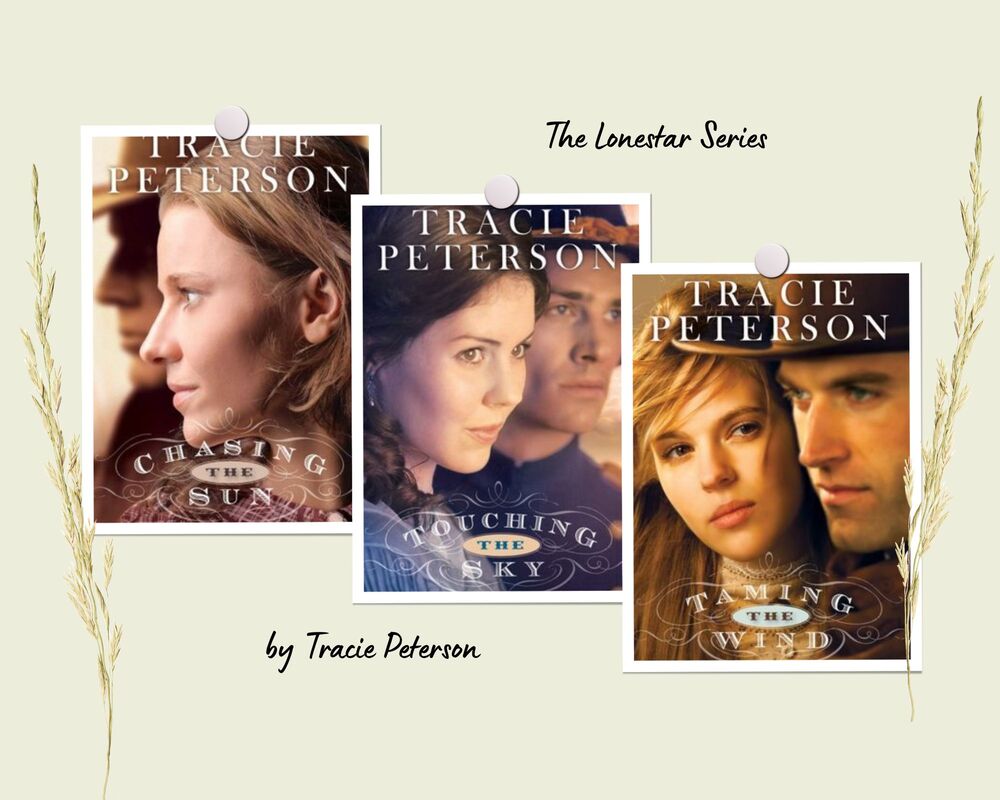

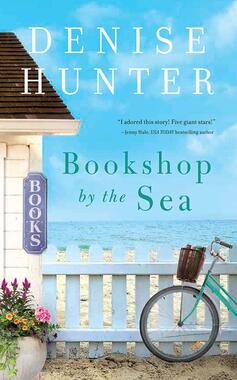
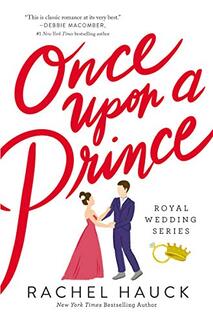
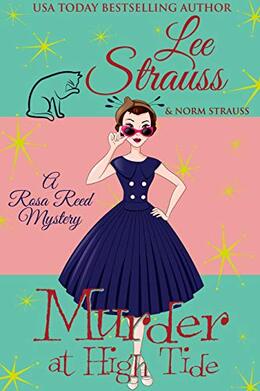

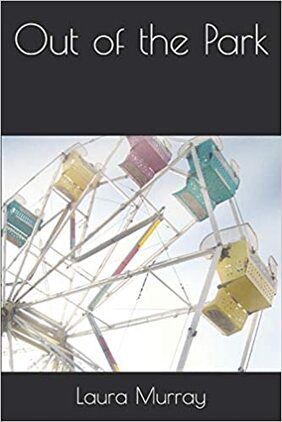
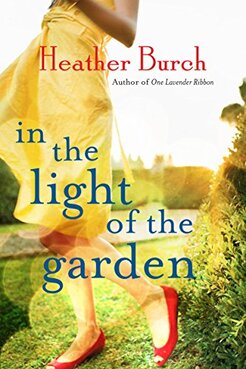
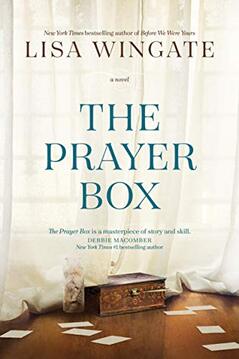
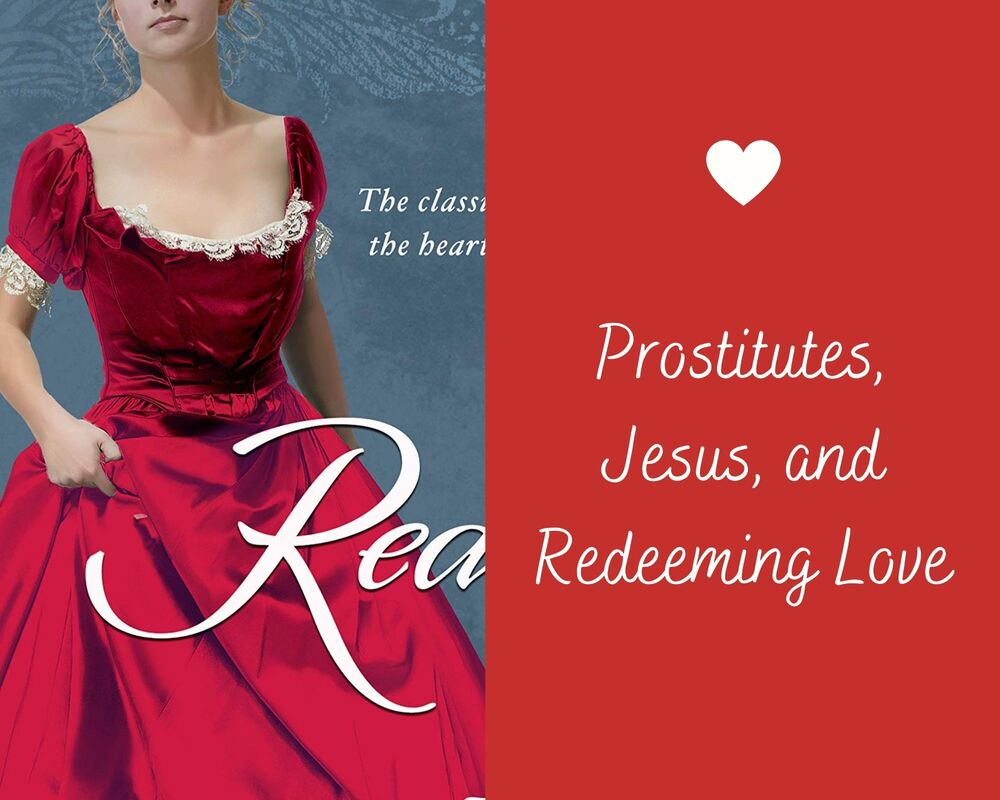

 RSS Feed
RSS Feed
